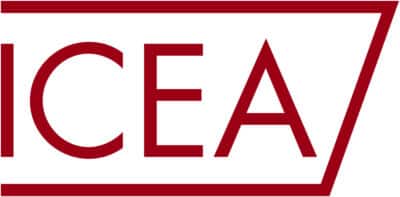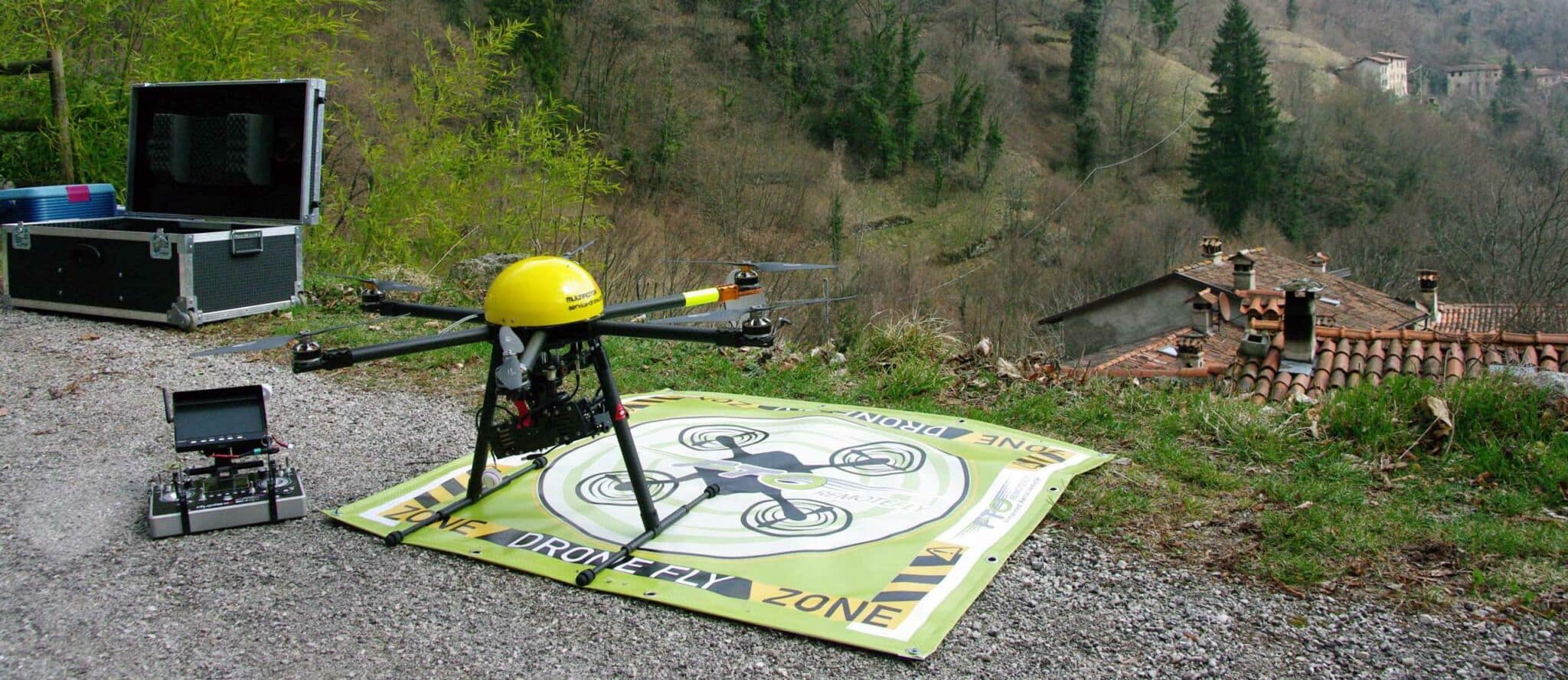
The second-level Master’s degree in GIScience and Remote Sensing Systems for integrated land and natural resource management prepares new GIScience professionals for various career paths, enabling them to:
– use interdisciplinary approaches, technological solutions and geographic information for complex territorial cases;
– acquire, represent and analyse geographic data in order to disseminate its expert use in complex decisions;
– manage the transformation of technologies supporting GIScience to identify solutions for businesses, public bodies and citizens.
The Master’s programme is designed to respond to the increase in the availability of geographic information and the development of new geographic data management technologies (drones, WebGIS, mobile-GIS) that require the updating, reorganisation and processing of decision-making processes in the public, private and non-profit sectors, given that approximately 80% of available information and collective and personal decisions are related to the territory.
The training activities of the Level II Master’s Degree in GIScience and SPR are organised into seven specialisations, including one synchronous online specialisation (live online lessons) and six asynchronous online specialisations (pre-recorded video lessons).
The first part of the Master’s programme consists of courses common to all tracks, delivered synchronously online (live online lessons), which are essential for a comprehensive geographical background and specific knowledge. The programme starts with human and physical geography and cartography, and then moves on to an understanding of the territory. GIScience is explored in depth in the strict sense, followed by specialisation courses that provide specific sectoral skills for different professional profiles.
The Master’s programme adopts a situational learning approach, alternating lectures with practical examples and experiments, excursions and field activities, including the use of Remotely Piloted Aircraft Systems (three weekends of attendance are planned during the first part).
Starting from the basics, the course provides specific skills in the fields of GIScience, cartography, mobile GIS, GIS software and data formats, land interpretation, technical instrumentation, geodatabases and coding, satellite and drone remote sensing, WebGIS, Remotely Piloted Systems, participatory GIS and geoinformatics.
For further information: mastergiscience.it
The second-level Master’s degree in GIScience and Remote Sensing Systems for integrated land and natural resource management is aimed at recent graduates, officials and technicians employed in the public and private sectors, and freelancers interested in acquiring advanced training and scientific specialisation, which are increasingly in demand by public bodies, private organisations and non-profit organisations that need to manage the increase in the availability of geographic information and the rapid development of new geographic data management technologies (from drones to WebGIS and mobile GIS).
The Master’s programme trains the following professional profiles in the field of GIScience:
– Geographic Information Manager;
– Geographic Information Officer;
– Geographic Knowledge Enabler
– Geographic Information Specialist;
– GeoData Analyst.
The Master’s Degree in GIScience and Remote Sensing Systems is divided into three main parts:
1) Common courses: from November to February, students build the place/people/pixel background essential for developing the necessary skills. Through a structured programme starting with the general characteristics of the Earth’s surface, students will progress to specific GIScience modules. This part is delivered in a blended format (synchronous online video lessons, to be followed live, and three weekends of in-person classes).
2) Specialised courses: from March to July, students take specialised courses, choosing from seven areas of specialisation:
– Production and management of geo-information (synchronous online): trains professionals who are experts in the evaluation and management of existing territorial information and in planning the actions necessary to acquire new information, defining the most appropriate technologies (in particular the role of Remote Piloting Systems) based on the needs of the organisation and the intervention to be carried out.
– GIScience for environmental conflict management and participation in public decision-making (asynchronous online): trains multi-skilled professionals who are experts in managing inclusive decision-making processes and local environmental conflicts within the framework of implementing sustainable territorial citizenship as enshrined in the Aarhus Convention and related European and national environmental policies.
– Cartography and GIS for green infrastructures (asynchronous online): trains multi-skilled professionals who are experts in the design of green infrastructures within the framework of integrated European policies for biodiversity conservation and the fight against climate change.
– Geo-information and new technologies for sustainable agriculture (asynchronous online): trains multi-skilled professionals who are experts in the processing of geoinformation and related technologies for improving the environmental performance of agriculture and the dissemination of sustainable agricultural practices.
– Geotechnologies and geo-information in land-use planning (asynchronous online): trains multi-skilled professionals who are experts in the use of new geographic information technologies in land management and governance.
– Design and Management of Territorial Data Infrastructures and GIS Development for Land Protection and Management (asynchronous online): trains multi-skilled professionals who are experts in the design and management of territorial data infrastructures, webGIS, and GIS development.
– GIScience and Geoinformatics (asynchronous online): trains multi-skilled professionals who are experts in geo-information and geoinformatics with solid knowledge of Python programming, in the management and development of projects related to the territory, from spatial data management to the production of WebGIS systems.
3) Internship: the training programme is completed with an internship or project work (450 hours). An additional 100 hours are allocated to the preparation of the final thesis.
The Master’s programme is interdepartmental and involves the following five departments of the University of Padua:
– Civil, Construction and Environmental Engineering – ICEA (coordinating department)
– Department of Geosciences
– Department of Historical, Geographical and Ancient Sciences – DISSGEA
– Department of Agronomy, Animal Science, Food, Natural Resources and Environment – DAFNAE
Department of Land and Agro-Forestry Systems – TESAF
The second-level Master’s degree in GIScience and Remote Control Systems for integrated land and natural resource management is particularly active in establishing contacts with institutions and companies to define internship agreements. To date, the Master’s programme has more than 50 agreements with institutions and companies operating in the field of GIScience. It should also be noted that students can propose internship agreements with entities with which they have already established or intend to establish collaborations. The Master’s programme management will assess the relevance and consistency of the internship activity together with the student.
Every year, the GIScience Master’s programme team continuously expands its pool of agreements and collaborations with institutions and companies. Students can develop their project work with one of the lecturers from the five departments of the Master’s programme: DICEA, Geosciences, DISSGEA, DAFNAE, TESAF.
The internship or project work totals 450 hours. An additional 100 hours are allocated to the writing of the final thesis.
If the number of enrolments exceeds 20, two prizes worth €1,000.00 each will be awarded.
Other benefits: Master’s students will receive a one-year ArcGIS student edition licence, an Agisoft Metashape Professional licence (for photogrammetry and SfM courses), an ENVI licence (for Remote Sensing courses), a server dedicated to processing with WebODM, open access platforms for webgis and an open access platform for managing photogrammetry of drone surveys.
The Master’s Degree in GIScience and Remote Sensing Systems is organising two virtual open days between June and September (published on the mastergiscience.it website).
These events are opportunities to meet and exchange information for anyone who would like to receive more details, ask questions or clarify any doubts. During the Open Days, you will have the opportunity to talk to the Director of the Master’s programme, Prof. Massimo De Marchi, the Deputy Director of the Master’s programme and Head of Internships and Project Work, Prof. Salvatore Pappalardo, the classroom tutor Dr Giuseppe Della Fera, and some of the teachers on the Organising Committee.
The Master’s programme in GIScience and Remote Sensing Systems team is particularly active in the local area. Every year, it organises scientific and socio-cultural events in the field of GIScience and Remote Sensing Systems with the aim of spreading the culture of geographic information that is open, shared and accessible to all.
Our events are always free for anyone interested and are organised around a number of recurring events: GIS Summer (June-September), Drones for Good Festival (September); Science4All (September); Geo November (November); GIS Day (November); International Geography Night (April).
The general ranking of merit will be published on the Italian page of this Master according to the timing provided in the Call.
Information
FAQ
The programme offers 304 hours of teaching, 646 hours of individual study and 550 hours of internship/project work (divided into 450 hours of internship/project work and 100 hours of final project) for a total of 1500 hours. The Master’s programme is divided into 20 ECTS credits of core teaching, 18 ECTS credits of specialisation teaching, 18 ECTS credits of internship and 4 ECTS credits of final project. The training programme is completed with an internship or project work. The internship can be carried out at one of the departments or at affiliated institutions and companies. As an alternative to the internship, it is possible to carry out a project work to be agreed with the management.
All applicants for the Master’s Degree in GIScience and Remote Sensing Systems must have obtained their Master’s Degree by the start date of the Master’s programme (which will be available when the academic calendar for the common courses is published and shared).
For all specialisations, the first part of the Master’s programme consists of courses common to all specialisations; these courses are delivered in a blended format that combines synchronous online video lessons, to be followed live, and three weekends of in-person classes (at the University of Padua and in the field). The common courses require everyone to attend online (live) and will be conducted and delivered via the Zoom platform.
When the specialisation courses begin, specialisation 1 (synchronous online) will continue to follow the synchronous online lessons live (Zoom), while the asynchronous (recorded) specialisations will follow the video lessons through the University’s Moodle platform.
The attendance requirement is 70% (calculated on the total number of lessons: both in-person, synchronous and asynchronous).
Starting with Ministerial Decree 270/2004 of the Ministry of Education, University and Research, the Master’s Degree in GIScience and SPR is an Executive Master’s Degree that integrates academic training with situational learning and practice (both basic and advanced), with professionalising content. Its objective is to facilitate entry into the world of work and to provide further training and specialisation for all those who are already engaged in other work activities.
You can see all subjects at the following link, by clicking on each specialization: https://www.mastergiscience.it/il-master/cose-il-master/

